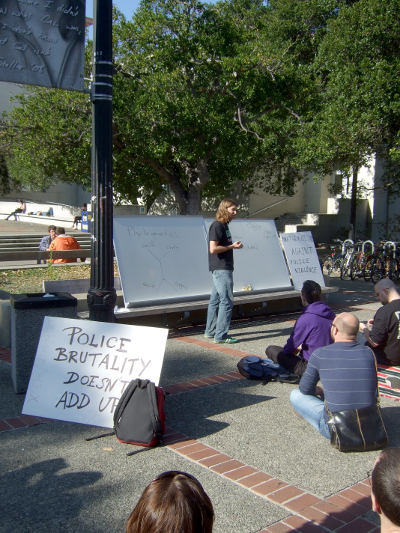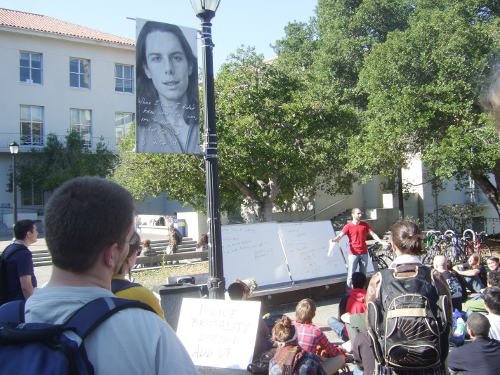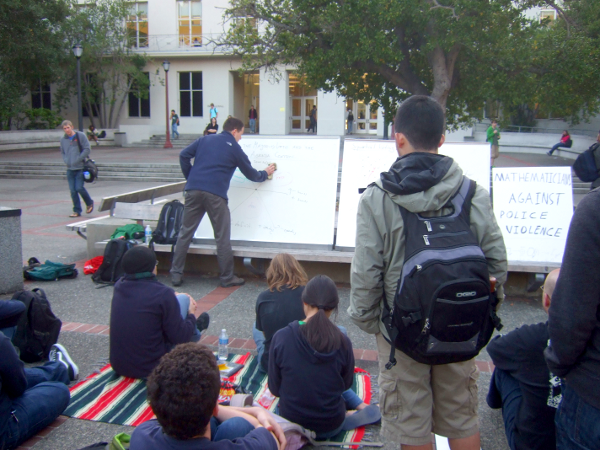
I was shocked by the violence the police here in the Bay Area used against peaceful protesters in recent weeks. Examples include shooting grenades at people lying on the ground and using batons to savagely beat up people for no reason. Apart from being incredibly brutal, I think this kind of police behavior is completely unnecessary and simply unprofessional. It is a vital feature of a democracy that people can protest! And even if camps of protesters need to be removed, there is no reason to use violence to do it!
Last week, Nathan Ilten had the great idea of organizing a teach-in against police violence. Basically, this is a bunch of mathematicians giving lectures in public where everybody can see them. I think this is a great way of raising public awareness for a political issue while at the same time communicating interesting ideas. I have participated in a couple of these in Berlin - we had a lecture in front of the Rotes Rathaus and a lecture in the U-Bahn - and it is great that Nathan took the initiative to make this kind of event happen in Berkeley as well.

The teach-in took place yesterday from 11 to 5 at Dwinelle Plaza on the UC Berkeley campus and it was a resounding success. At the peak, the talks drew crowds of about one hundred people and we had a solid attendance throughout the day. Everything stayed peaceful and we had no trouble with the police at all. (I guess they were busy trying to stare down the people at the Occupy camp on Sproul.) And our event was covered by a local radio station.
We had a wide range of talks, some addressing mathematical aspects of politics, some focusing on mathematical subjects, some targeted at a general audience and some intended for math majors. Our speakers were Chris Manon, Andrew Critch, Charley Crissman, Eugenia Rosu, Piotr Achinger and myself. I do not intend this blog post to be a comprehensive account of the teach-in, so please forgive me when I do not summarize each of their talks. I just want to mention that I particularly enjoyed Andrew's and Charlie's talks, because they provided mathematical perspectives on politics, which I think is particularly effective for this type of event. (In fact, "mathematical politics" make a great subject for any kind of general mathematics event, as Svante Linusson's brilliant talk at the last Bad Math Day demonstrated! Politics never fail to get an audience involved.)

The title of my own talk was Geometry, the Majority Vote and the Power of Agenda Control and its topic was McKelvey's theorem. McKelvey's theorem is a surprising result with a beautifully intuitive proof that can be made accessible to everyone. Its morale in this context is this: Protest, i.e., the struggle for the control of the political agenda, is a much more important element of democracy than voting! Ergo: the police should not beat up protesters! If you are interested to learn more about this, stay tuned: I will blog about this tomorrow.
My talk was at 4pm and I think it turned out very well. Despite the late hour I had an interested audience, who stayed involved throughout the talk. I was especially pleased to speak with some non-mathematicians afterward, who just happend to walk by and then decided to stay and listen. They even asked when the next teach-in was going to be! Was will man mehr!